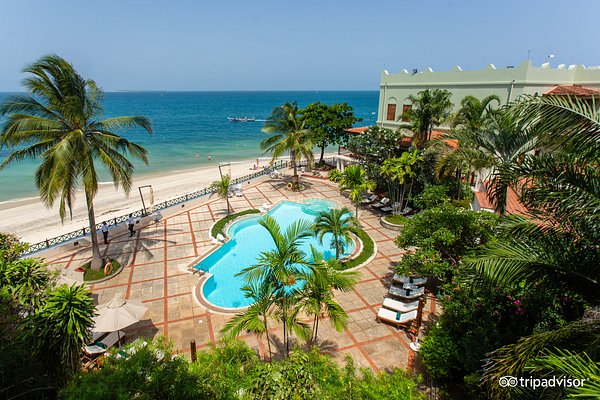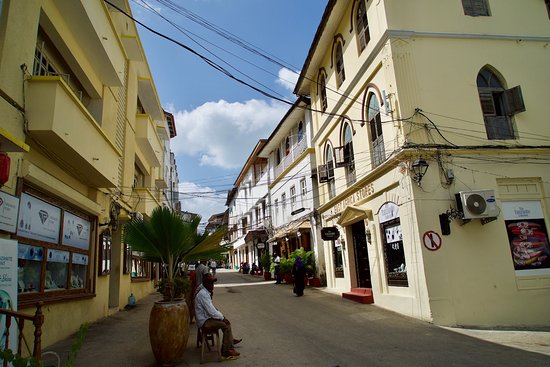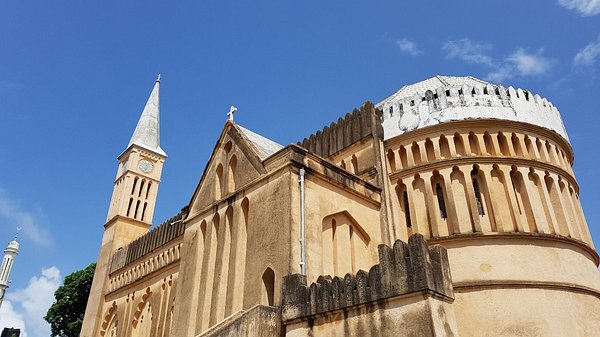Stone Town: The Soul of Zanzibar
Stone Town is the historic heart of Zanzibar and one of the most fascinating cities in East Africa. As a UNESCO World Heritage Site, it’s a living museum where centuries-old traditions blend with modern life. Walking through the narrow, winding streets of Stone Town, you’ll find yourself surrounded by a mix of cultures, with influences from Africa, the Arab world, India, and Europe. It’s a city filled with history, vibrant markets, and stunning architecture, making it a must-visit destination for anyone exploring Zanzibar.
History of Stone Town
Stone Town has a rich and complex history. Once the capital of the Zanzibar Sultanate, it was a major hub for trade, including the spice trade and, unfortunately, the slave trade. Its strategic location made it a meeting point for different cultures, with traders and sailors from Arabia, India, Persia, and Europe all passing through.
The name “Stone Town” comes from the grand buildings made of coral stone that still stand today. These buildings, with their large wooden doors carved with intricate designs, are a symbol of the city’s past wealth and importance.
Architecture and Cultural Heritage
Stone Town’s unique architecture reflects the city’s diverse influences. You’ll see Arab-style homes with central courtyards, Indian-style wooden balconies, and European colonial buildings. The most famous architectural feature of Stone Town is its carved wooden doors. These doors, often adorned with brass decorations, are not just beautiful but also tell stories of the people who once lived there. The larger and more decorated the door, the wealthier the owner.
The city’s buildings, though aged, give it a timeless charm. Narrow alleys crisscross through Stone Town, where you can wander and discover hidden gems like tiny shops, coffee houses, and local art galleries. You’ll often hear the call to prayer from mosques, as Islam is the main religion practiced here, but the city is also home to churches and Hindu temples, reflecting its multicultural history.
Main Attractions in Stone Town
– House of Wonders (Beit-al-Ajaib): The largest and tallest building in Stone Town, once the palace of the Sultan of Zanzibar. It was the first building in East Africa to have electricity. Today, it houses a museum showcasing Swahili culture and Zanzibar’s rich history.
– The Old Fort: Built in the 17th century by the Omani Arabs to defend against the Portuguese, the Old Fort is now a cultural center where events and festivals take place, including the annual Zanzibar International Film Festival (ZIFF).
– The Sultan’s Palace (Palace Museum): This grand palace was home to the sultans of Zanzibar. It is now a museum where visitors can see the royal furniture, clothing, and items that belonged to the Sultan’s family.
– Slave Market Memorial and Anglican Cathedral: Stone Town was once a major center for the East African slave trade. The Slave Market Memorial and the Anglican Cathedral, built on the site of the former slave market, stand as reminders of this dark period in Zanzibar’s history. The underground chambers where slaves were held are still open for visitors to see.
– Forodhani Gardens: A beautiful park by the sea, where locals and tourists gather in the evening to enjoy the night market. Here, you can try fresh seafood, Zanzibari pizza, and other local dishes.
– Freddie Mercury’s House: The birthplace of the legendary Queen singer Freddie Mercury is in Stone Town. While it’s not a museum, it is a popular stop for fans of the musician.
Local Life in Stone Town
Despite its historical significance, Stone Town is a lively place, full of everyday activity. The narrow streets are often busy with locals going about their daily business—buying fresh fish, fruits, and spices from the bustling markets like Darajani Market, or catching up with friends at local coffee shops. The city has a laid-back feel, where the past and present coexist seamlessly.
The people of Stone Town are welcoming and proud of their culture. You’ll hear Swahili being spoken everywhere, and the warmth of the Zanzibari hospitality is felt throughout the city. If you visit during a festival like Eid or during the Zanzibar International Film Festival, you’ll see the city come alive with celebrations, music, and performances.
Food and Shopping
Stone Town is also known for its vibrant food scene. The night market at Forodhani Gardens is the best place to taste local dishes like grilled seafood, octopus skewers, sugar cane juice, and the famous Zanzibari pizza. During the day, small restaurants and street vendors offer dishes influenced by Swahili, Arab, and Indian flavors.
Shopping in Stone Town is a unique experience. The markets are full of stalls selling spices, traditional fabrics like kangas, and hand-carved wooden items. You’ll also find beautiful silver jewelry, paintings, and other local crafts, perfect for souvenirs to take home.
Why Visit Stone Town?
Stone Town is not just a destination for history lovers but for anyone who enjoys exploring a city rich in culture and character. The combination of stunning architecture, fascinating history, and lively local life makes it a unique place to visit. Whether you’re wandering through its ancient streets, shopping for spices, or learning about its past, Stone Town offers an unforgettable experience.



